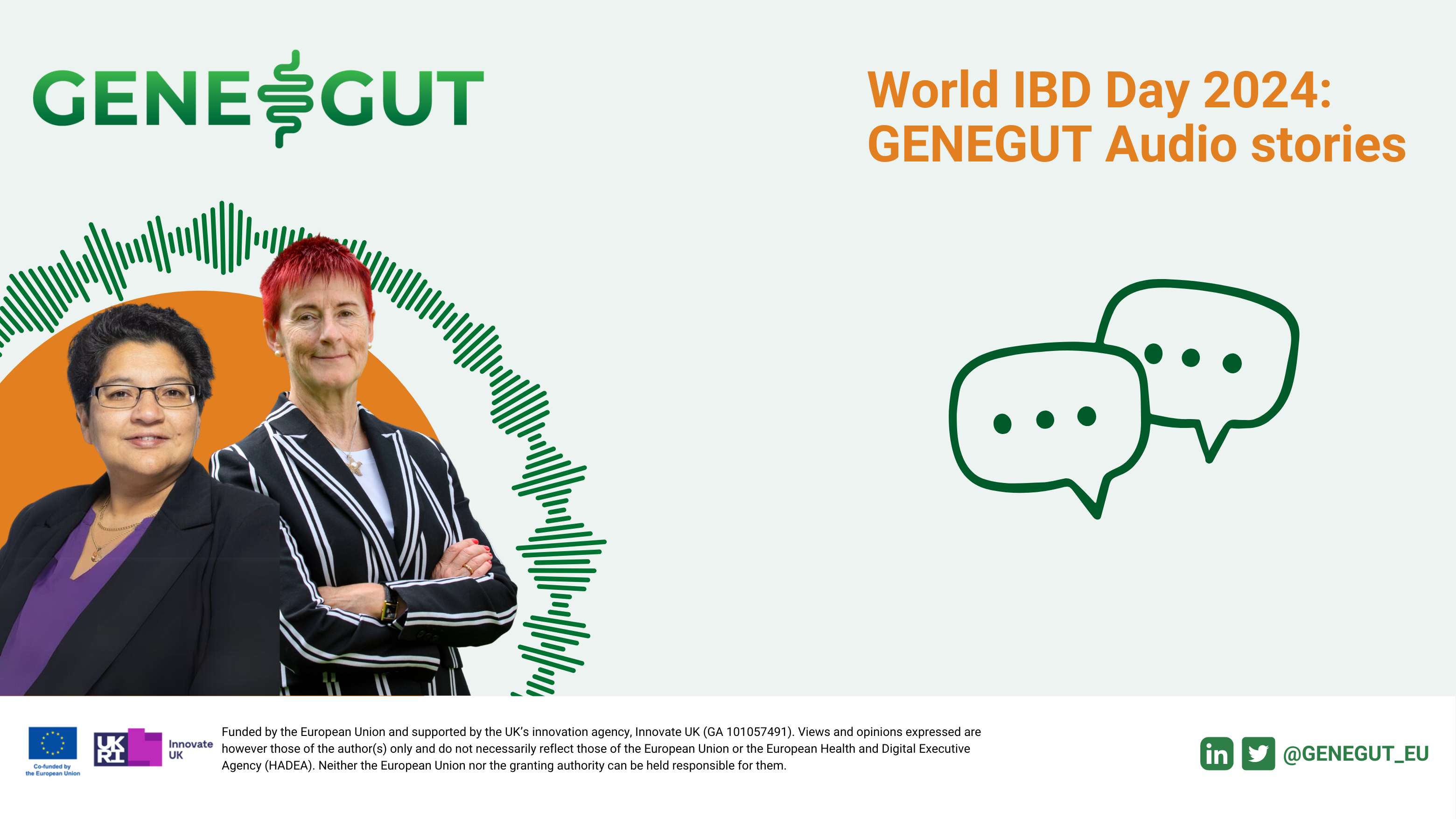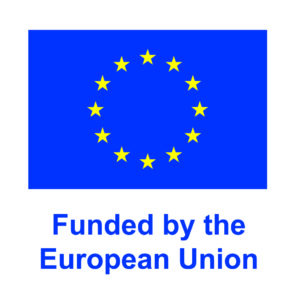May 19, 2024 – To commemorate World IBD Day, the GENEGUT project is launching a series of audio-stories as part of this year’s theme, “IBD Has No Borders.” GENEGUT, which aims to develop an innovative RNA-based therapy for ileal Crohn’s Disease, is using this occasion to highlight the urgent need for global access to care and advanced therapies for Inflammatory Bowel Disease (IBD).
IBD, including conditions such as Crohn’s Disease and ulcerative colitis, affects millions of people worldwide. We asked two patients, Magda Sajak-Sczcerba from Poland and Jasneel Doe from New Zealand, as well as two researchers from the GENEGUT project, Dr. Silvia Melgar (APC Microbiome Ireland) and GENEGUT coordinator Prof. Caitriona O’Driscoll (University College Cork) to share their thoughts on the importance of access to proper IBD care and how to solve the need for new, innovative therapies to improve the lives of patients.
Magda Sajak-Sczcerba, Poland
Despite the universal nature of IBD, access to necessary care greatly varies across geographic and socio-economic lines. Patients from underserved regions often encounter significant barriers, including limited availability of specialists and advanced treatments. “In the year 2000, IBD was not very common in Poland and there was a lack of knowledge available to patients – not to mention access to modern treatment methods” explained Magda Sajak-Sczcerba, a patient from Poland involved in the audio-stories. This disparity not only delays diagnosis but can also prevent patients from receiving potentially life-altering treatments.
Prof. Caitriona O'Driscoll, UCC
On a more hopeful note, Dr. Silvia Melgar and Prof. Caitriona O’Driscoll from the GENEGUT project discuss the potential of RNA-based therapies to transform the treatment landscape for IBD, particularly ileal Crohn’s Disease. “Now, while the GENEGUT project is challenging, in the end, if we are successful and achieve a safe and effective oral medicine, this will really revolutionise the treatment of IBD and will significantly improve the quality of life of patients”, says Prof. O’Driscoll.
Jasneel Doe, New Zealand
The personal accounts from patients reveal not only the physical toll of IBD but also the profound emotional and social impact. “Navigating my IBD isn’t easy” shared one patient, Jasneel Doe from New Zealand, highlighting the often difficualt nature of symptom management. Families also bear the burden, often navigating the unpredictable waters of care and support alongside their loved ones. The shared accounts of both, Magda and Jasneel, call for a strengthening of support networks and resources, such as IBD support groups, national Crohn’s and colitis associations, and other dedicated organizations, to aid those affected.
Dr. Silvia Melgar, UCC / APC
Silvia Melgar, GENEGUT researcher from UCC / APC Microbiome Ireland, mentions the shift towards a more targeted medicine approach in IBD management, which tailors treatments based on the disease and the patient’s specific condition, rather than a one-size-fits-all methodology. She highlights the promise of new therapies being tested, including small molecules and biologics targeting cytokines, and underscores the potential of RNA-based therapies being developed within the GENEGUT project.
The GENEGUT project’s commitment to “IBD Has No Borders” not only highlights the necessity for innovative research the development of novel therapies, but also emphasises the importance of equal access to these advances across the globe. For more information on the day, visit GENEGUT partner EFCCA’s website www.efcca.org


